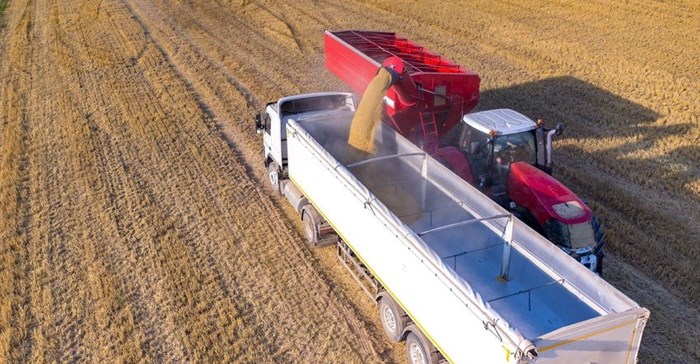Zimbabwe and its Southern African counterparts may face transport bottlenecks to move more than 10 million tonnes of grain inland with potential congestion at the ports and roads expected given that for the next 18 months the region will not have sufficient grain from its own production and carry-over stocks. Congestion at ports and roads will affect the turn-around time of grain trucks, a trade report has shown.
Port capacity in question
The latest Trade Intelligence Report produced by The Agricultural Business Chamber said emerging concerns in logistics relate to the potential traffic congestion at the ports and roads considering that 80 percent of all grain transported inland in the region is moved by road. "If the region becomes entirely dependent on deep-sea imports, it brings the important question of whether the port capacity will manage to handle an unprecedented level of grain imports," the report said.
"The question of whether infrastructural capacity is sufficient to meet at least 6,2 million tonnes of maize imports, and an additional 5 million tonnes of other grains - such as rice, soybean and soybean oil cake, wheat, among others, is a question that is yet to be answered satisfactorily. It is clear that there is likely going to be a significant amount of maize and other grains that will be imported from outside the region, with the likely sources being Argentina, Brazil, Mexico, the United States of America and the Ukraine," the TIR said.
The efficient movement of grain
"This point is particularly important if we consider that 80 percent of all grain transported inland is moved by road. The potential problem of traffic congestion could be averted, or at the very least, reduced by the possibility of increasing the use of rail transport as an alternative," the report said.
The logistics element could affect Zimbabwe which is importing more than one million tonnes of grain this year. Government and the private sector led by the Grain Millers Association of Zimbabwe are making efforts to avert the transport bottlenecks.
GMAZ has since struck a deal with Mozambique's national rail company, Caminhos de Ferro de Moçambique for the efficient movement of grain into the country.
The milling industry expects to move at least 120,000 tonnes per month through Mozambique hence the discussions to ensure smooth movement from Brazil, Argentina, Mexico, South Africa in order to assist Government to alleviate food shortages due to the drought the country is going through.
To enhance efficient movement of grain throughout the country, the millers have asked Transport and Infrastructural Development Minister Jorum Gumbo for a 12-month temporary waiver on the Third Country Rule and the Rule of Cabotage on Road transport.
New challenges to an old problem
"Vessels laden with 100,000 tonnes of maize are now in transit and expected to berth at Beira and Maputo ports in a fortnight. While we have also engaged the NRZ and the CFM of Mozambique to rail into the country, the quantum of maize is too huge and requires us to procure road transport so that maize is quickly freighted into the hinterland and avoid congesting at the ports. Suffice it to say, however, that the rail is currently struggling in moving our wheat imports," GMAZ national chairman Tafadzwa Musarara said in the letter to the minister.
The trade intelligence report said that provisional estimates from Transnet show that out of the 308 waggons in their fleet, there are 108 waggons that are grain containers which have the capacity to transport 7,920 tonnes per day.
Southern African, faced with structural changes in national, regional, and global food markets, the region faces what could be an entirely new challenge to what is fundamentally an old problem. Chief among these challenges is determining the level of production and import requirements, according to the report.






































